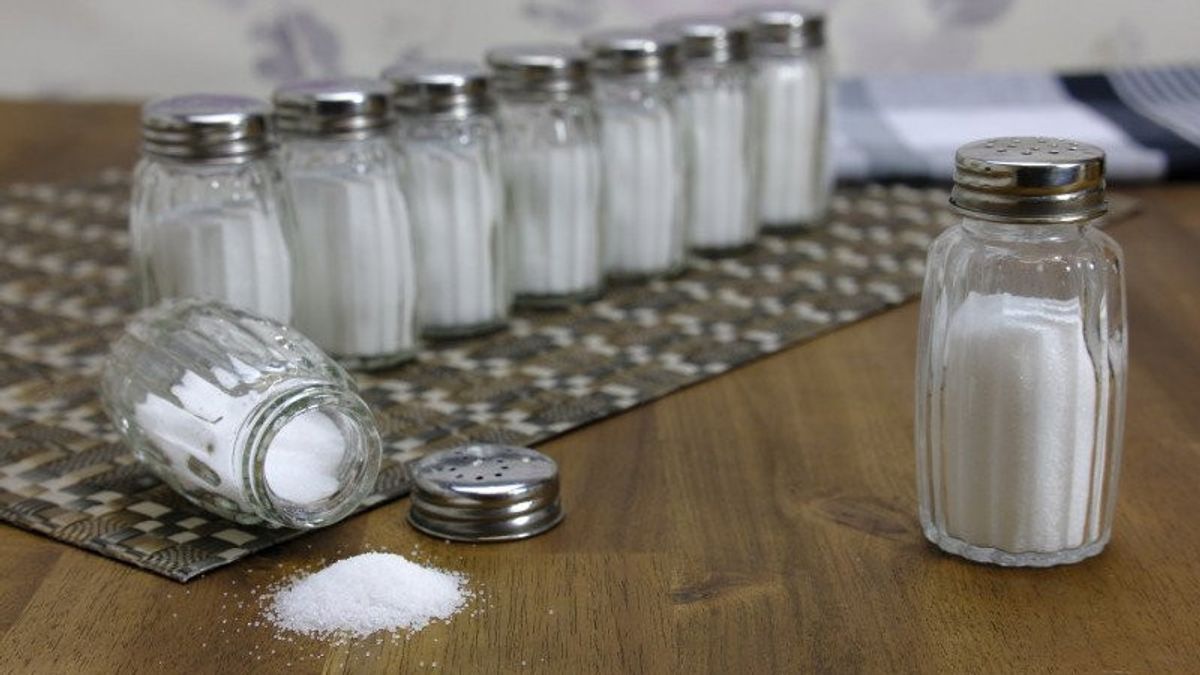JAKARTA - The World Health Organization (WHO) report on reducing sodium intake shows that planet Earth is off track to achieve the world's target of reducing salt consumption by 30 percent by 2025.
Sodium is an important nutrient but can increase the risk of heart disease, stroke, and premature death if consumed excessively.
The main source of sodium intake is table salt (natrium chloride), but also other spices such as sodium glutamate.
“ An unhealthy diet is the main cause of global death and disease, and excessive sodium intake is one of the main causes, ” said WHO Director General Tedros Adhanom Ghebreyesus as quoted by Anadolu via Antara, Thursday, March 9.
Reports show that the mandatory sodium reduction policy only protects 3 percent of the world's population, and 73 percent of the 194 WHO member states do not have the full implementation of the policy.
"This report shows that most countries have not adopted a mandatory sodium reduction policy, thus risking their citizens suffering from heart attacks, strokes, and other health problems," said Tedros.
Global average salt intake is estimated at 10.8 grams per day, or more than double the WHO recommendation, which is less than 5 grams of salt per day or one teaspoon.
The report says consuming too much salt can be a major risk factor for diet and nutritional-related deaths.
More evidence has emerged that documents the relationship between high sodium intake and increased the risk of other health conditions such as stomach cancer, obesity, osteoporosis, and kidney disease.
Implementing a very cost-effective sodium reduction policy could save about 7 million lives globally by 2030, the WHO report said.
This policy can facilitate the path of achieving the Sustainable Development Goal target, namely reducing the death rate due to non-communicable diseases.
However, currently, only nine countries, namely Brazil, Chile, Czech Republic, Lithuania, Malaysia, Mexico, Saudi Arabia, Spain, and Uruguay, have comprehensive policy packages recommended to reduce sodium intake.
"WHO calls on all countries to implement 'Best Buys' for sodium reduction, and to manufacturers to implement WHO benchmarks for sodium content in food," Tedros said in a statement.
A comprehensive approach to sodium reduction includes mandatory policies and intervention “ the best purchase ” WHO related sodium, which contribute significantly to prevent non-communicable diseases.
Furthermore, WHO calls on the global community to reduce salt in food, including by reformulating foods to contain less salt and setting targets for sodium in food.
Another action that can be taken is to establish a public food procurement policy to limit salt or sodium-rich foods in public institutions such as hospitals, schools, workplaces, and nursing homes.
WHO encourages labeling at the front of packaging that helps consumers choose low sodium products, behavioral change communication, and mass media campaigns to reduce salt consumption/natrium.
Countries are encouraged to set a sodium content target for processed foods in line with Tolok Ukur Sodrium Global WHO and enforce it through this policy.
The policy of reducing sodium must be more effective, achieving wider coverage, and protecting against commercial interests while providing equal playing fields for food producers.
As part of the report, WHO developed a sodium state score card for member countries based on the type and number of sodium reduction policies they have.
The English, Chinese, Japanese, Arabic, and French versions are automatically generated by the AI. So there may still be inaccuracies in translating, please always see Indonesian as our main language. (system supported by DigitalSiber.id)













